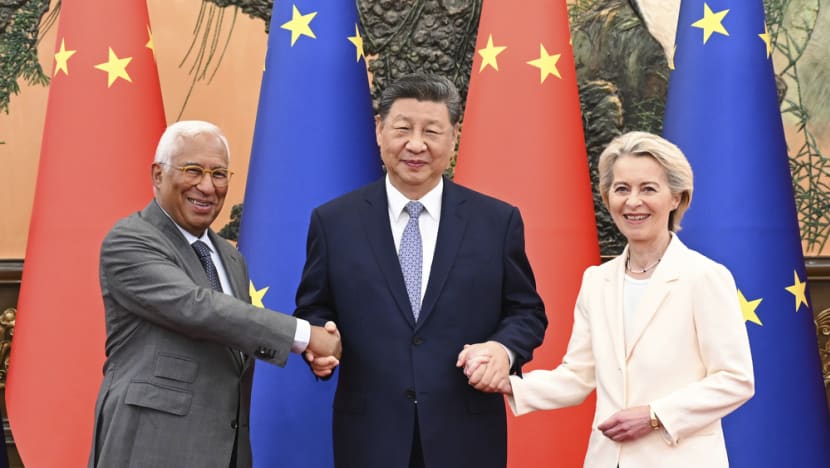World
EU-China Summit Reveals Strategic Challenges for Southeast Asia

The recent EU-China summit held in Beijing brought to light the complexities and tensions within the bilateral relationship between the European Union and China. This meeting, which took place in October 2023, illuminated various challenges and opportunities that may significantly influence the strategic landscape of Southeast Asia.
The discussions between EU leaders and Chinese officials focused on multiple critical issues, including trade imbalances, technological competition, and environmental cooperation. Daniel Balazs of the S Rajaratnam School of International Studies notes that the underlying frictions in EU-China ties present both risks and opportunities for Southeast Asian nations. As these regional countries navigate their own interests, the outcomes of such international dialogues will be pivotal.
The EU has expressed concerns regarding China’s growing influence in the region, particularly in light of its Belt and Road Initiative. This massive infrastructure project aims to enhance connectivity and trade across Asia and beyond, but it has raised alarms among EU policymakers about potential debt dependency and economic coercion affecting Southeast Asian nations. Balazs emphasizes that Southeast Asia must balance its relations with both the EU and China to maximize its strategic opportunities while mitigating risks.
Moreover, the summit highlighted the need for a unified approach to global challenges such as climate change and public health. Both the EU and China have pledged to work collaboratively on these fronts, which could lead to greater stability in Southeast Asia. However, the effectiveness of such collaboration remains uncertain, given the competing national interests.
Southeast Asia’s response to these developments will be crucial. Countries in the region are increasingly seeking to diversify their economic partnerships, reducing reliance on any single power. This strategy could enable them to better navigate the shifting dynamics in their relationships with both the EU and China. Balazs argues that Southeast Asian nations have an opportunity to leverage their strategic position to influence the outcomes of EU-China interactions.
The EU-China summit serves as a reminder of the intricate web of relationships that define the geopolitical landscape of the region. As Southeast Asia grapples with the implications of these ties, the ability of its countries to maintain autonomy while engaging with larger powers will be paramount. Regional cooperation, strong governance, and strategic foresight will be key to ensuring that Southeast Asia remains resilient amid the ongoing evolution of EU-China relations.
In conclusion, the developments from the EU-China summit not only underscore the challenges inherent in their relationship but also highlight the potential for Southeast Asia to emerge as a significant player in shaping future strategic alignments. As the region continues to adapt to these complexities, its nations must remain vigilant and proactive in pursuing their interests on the global stage.
-

 World5 months ago
World5 months agoSouth Korea’s Foreign Minister Cho Hyun to Visit China This Week
-

 Business5 months ago
Business5 months agoStarling Bank Plans Secondary Share Sale, Targeting $5.4 Billion Valuation
-

 Top Stories5 months ago
Top Stories5 months agoMunsang College Celebrates 100 Years with Grand Ceremony
-

 World5 months ago
World5 months agoPAS Aims to Expand Parliamentary Influence in Upcoming Election
-

 Business7 months ago
Business7 months agoKenvue Dismisses CEO Thibaut Mongon as Strategic Review Advances
-

 Lifestyle6 months ago
Lifestyle6 months agoHumanism Camp Engages 250 Youths in Summer Fest 2025
-

 Sports6 months ago
Sports6 months agoDe Minaur Triumphs at Washington Open After Thrilling Comeback
-

 Sports7 months ago
Sports7 months agoTupou and Daugunu Join First Nations Squad for Lions Clash
-

 Top Stories7 months ago
Top Stories7 months agoColombian Senator Miguel Uribe Shows Signs of Recovery After Attack
-

 World7 months ago
World7 months agoASEAN Gears Up for Historic Joint Meeting of Foreign and Economic Ministers
-

 Health6 months ago
Health6 months agoNew Study Challenges Assumptions About Aging and Inflammation
-

 Business7 months ago
Business7 months agoOil Prices Surge Following New EU Sanctions on Russia









